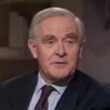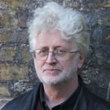The Spies of Warsaw
(Libby/OverDrive eAudiobook)
Available Platforms
Description
More Details
Excerpt
Similar Series From Novelist
Similar Titles From NoveList
Similar Authors From NoveList
Published Reviews
Booklist Review
*Starred Review* It's the autumn of 1937, and the shadows of war are darkening over Warsaw. Colonel Jean-Francois Mercier, military attaché with the French embassy (a spy, that is), doesn't like what he's hearing, wherever he snoops. The Poles know trouble is coming but aren't prepared for it, and the French, who might still be able to prepare, are convinced they are impregnable. As spies from throughout Europe gather at sundry diplomatic functions to trade innuendos, Mercier stumbles across what could be the real thing: access to a renegade Nazi who might be able to broker a deal that could give the French knowledge of German attack plans. This is Furst's wheelhouse, of course, Europe sliding toward war, intelligence flowing as freely as wine in every café, romance (a shadow sport, like espionage) flourishing as tanks gather at the border. Furst uses essentially the same setting (Warsaw stands in for Paris this time) and establishes the same mood in most of his novels, but he always gives us something new, some heretofore unrevealed angle of vision. This time it's a behind-the-scenes look at French spies trying to convince French politicians to open their eyes. That's the big picture, but as always, it's the human side of the drama that draws us: Mercier, the career soldier, falling in love at the wrong time with a Polish lawyer and attempting to carve out an individual life in the midst of international chaos. Nobody does this stuff better than Furst because nobody can dramatize like he can the horrible realization that somebody else's politics will soon obliterate daily life as you know it.--Ott, Bill Copyright 2008 Booklist
Publisher's Weekly Review
Furst (The Foreign Correspondent) solidifies his status as a master of historical spy fiction with this compelling thriller set in 1937 Poland. Col. Jean-Francois Mercier, a military attache at the French embassy in Warsaw who runs a network of spies, plays a deadly game of cat-and-mouse with his German adversaries. When one of Mercier's main agents, Edvard Uhl, an engineer at a large Dusseldorf arms manufacturer who's been a valuable source on the Nazis' new weapons, becomes concerned that the Gestapo is on to him, Mercier initially dismisses Uhl's fears. Mercier soon realizes that the risk to his spy is genuine, and he's forced to scramble to save Uhl's life. The colonel himself later takes to the field when he hears reports that the German army is conducting maneuvers in forested terrain. Even readers familiar with the Germans' attack through the Ardennes in 1940 will find the plot suspenseful. As ever, Furst excels at creating plausible characters and in conveying the mostly tedious routines of real espionage. Author tour. (June) (c) Copyright PWxyz, LLC. All rights reserved
Library Journal Review
Furst's latest novel is sure to be counted as one of the very best of the historical espionage genre. Literate, admirably plotted, and featuring a memorable protagonist, it is realistic and sad but hopeful and romantic. A highly competent French army officer, Jean-Francois Mercier is assigned in 1937 to military attache duty in Warsaw, a position recognized by all as an opportunity, if not a duty, to engage in spying. Mercier is a World War I combat-wounded hero, a widower whose behavior reveals a nobility and a sense of honor mostly lacking in today's fiction heroes. Using Polish and German agents, he engages in thrilling derring-do and soon recognizes the sinister intentions of the Nazis, which the French high command apparently chooses to ignore. He does his best to alert the French General Staff, especially as to German invasion strategy. Furst brilliantly captures the setting, along with the cynicism of the Warsaw sociopolitical scene. His presentation of Mercier's romantic interludes with a Parisian woman of Polish heritage is sophisticated, elegant, and discreet. Enthusiastically recommended for all libraries. [See Prepub Alert, LJ 2/1/08.]--Jonathan Pearce, California State Univ., Stanislaus (c) Copyright 2010. Library Journals LLC, a wholly owned subsidiary of Media Source, Inc. No redistribution permitted.
Kirkus Book Review
As the Nazis openly plan an invasion, France's military attach in Warsaw does a little spying, eats good meals, travels a bit and spends time in pleasant surroundings with a lovely lawyer for the League of Nations. Wounded in the Great War, Col. Jean-Fran‡ois Mercier is a widower with two grown daughters, a vast Parisian apartment, a handsome, slightly shabby country estate and two fine hunting dogs. His current assignment in Poland has him mixing with the local swells--where he picks up bits of information on the tennis court and at dinners--and running a modestly successful intelligence operation involving Herr Uhl, a plump German engineer who swaps details of the Nazis new tank for nights of love with a zaftig "Countess" in Mercier's employ. From the various little bits of information Mercier has gleaned, it becomes depressingly evident that the Nazis are beefing up their tank warfare capability with an eye on the Ardennes forest, the quickest way around the "impregnable" Maginot Line in which France's thick-headed military leaders have placed their total trust. Then the Uhl operation falls apart. An obedient hausfrau sharing his train compartment reports Uhl's nervous behavior to the authorities, resulting in his nearly successful kidnapping by some overeager intelligence agents. Mercier's successful intervention in the snatch earns him a place on the Nazi hit list. Undaunted, the suave Frenchman plans a fake hike on the German border to photograph the latest tank war games, obtaining even more evidence of the Huns' strategy, which will yet again be ignored by the dinosaurs at the top of the French army. Offsetting the frustrations at work is a dalliance with beautiful Anna Szarbek, his blind date at an embassy dinner. Furst (The Foreign Correspondent, 2006, etc.) cuts back a bit on the usual tension, but there is all of the wonderfully wistful late-'30s atmosphere that is his specialty. Copyright ©Kirkus Reviews, used with permission.
Booklist Reviews
*Starred Review* It's the autumn of 1937, and the shadows of war are darkening over Warsaw. Colonel Jean-Francois Mercier, military attaché with the French embassy (a spy, that is), doesn't like what he's hearing, wherever he snoops. The Poles know trouble is coming but aren't prepared for it, and the French, who might still be able to prepare, are convinced they are impregnable. As spies from throughout Europe gather at sundry diplomatic functions to trade innuendos, Mercier stumbles across what could be the real thing: access to a renegade Nazi who might be able to broker a deal that could give the French knowledge of German attack plans. This is Furst's wheelhouse, of course, Europe sliding toward war, "intelligence" flowing as freely as wine in every café, romance (a shadow sport, like espionage) flourishing as tanks gather at the border. Furst uses essentially the same setting (Warsaw stands in for Paris this time) and establishes the same mood in most of his novels, but he always gives us something new, some heretofore unrevealed angle of vision. This time it's a behind-the-scenes look at French spies trying to convince French politicians to open their eyes. That's the big picture, but as always, it's the human side of the drama that draws us: Mercier, the career soldier, falling in love at the wrong time with a Polish lawyer and attempting to carve out an individual life in the midst of international chaos. Nobody does this stuff better than Furst because nobody can dramatize like he can the horrible realization that somebody else's politics will soon obliterate daily life as you know it. Copyright 2008 Booklist Reviews.
Library Journal Reviews
As spies jostle one another in late 1930s Warsaw, a French military attache launches an affair with a striking lawyer at the League of Nations. With an 11-city tour. Copyright 2008 Reed Business Information.
Library Journal Reviews
Furst's latest novel is sure to be counted as one of the very best of the historical espionage genre. Literate, admirably plotted, and featuring a memorable protagonist, it is realistic and sad but hopeful and romantic. A highly competent French army officer, Jean-Franois Mercier is assigned in 1937 to military attach duty in Warsaw, a position recognized by all as an opportunity, if not a duty, to engage in spying. Mercier is a World War I combat-wounded hero, a widower whose behavior reveals a nobility and a sense of honor mostly lacking in today's fiction heroes. Using Polish and German agents, he engages in thrilling derring-do and soon recognizes the sinister intentions of the Nazis, which the French high command apparently chooses to ignore. He does his best to alert the French General Staff, especially as to German invasion strategy. Furst brilliantly captures the setting, along with the cynicism of the Warsaw sociopolitical scene. His presentation of Mercier's romantic interludes with a Parisian woman of Polish heritage is sophisticated, elegant, and discreet. Enthusiastically recommended for all libraries. [See Prepub Alert, LJ 2/1/08.]—Jonathan Pearce, California State Univ., Stanislaus
[Page 75]. Copyright 2008 Reed Business Information.Library Journal Reviews
Perennial best seller Furst writes some of the best historical fiction now being published, adding a touch of romance to the seedy world of espionage. This title is a good place for new readers to begin; it concerns a French military attaché assigned to glean information about the rising Nazi threat in Warsaw. (LJ 4/1/08)
[Page 37]. (c) Copyright 2015 Library Journals LLC, a wholly owned subsidiary of Media Source, Inc. No redistribution permitted.Publishers Weekly Reviews
Furst (The Foreign Correspondent ) solidifies his status as a master of historical spy fiction with this compelling thriller set in 1937 Poland. Col. Jean-Franois Mercier, a military attach at the French embassy in Warsaw who runs a network of spies, plays a deadly game of cat-and-mouse with his German adversaries. When one of Mercier's main agents, Edvard Uhl, an engineer at a large Dsseldorf arms manufacturer who's been a valuable source on the Nazis' new weapons, becomes concerned that the Gestapo is on to him, Mercier initially dismisses Uhl's fears. Mercier soon realizes that the risk to his spy is genuine, and he's forced to scramble to save Uhl's life. The colonel himself later takes to the field when he hears reports that the German army is conducting maneuvers in forested terrain. Even readers familiar with the Germans' attack through the Ardennes in 1940 will find the plot suspenseful. As ever, Furst excels at creating plausible characters and in conveying the mostly tedious routines of real espionage. Author tour. (June)
[Page 35]. Copyright 2008 Reed Business Information.Reviews from GoodReads
Citations
Furst, A., & Gerroll, D. (2008). The Spies of Warsaw (Unabridged). Simon & Schuster Audio.
Chicago / Turabian - Author Date Citation, 17th Edition (style guide)Furst, Alan and Daniel Gerroll. 2008. The Spies of Warsaw. Simon & Schuster Audio.
Chicago / Turabian - Humanities (Notes and Bibliography) Citation, 17th Edition (style guide)Furst, Alan and Daniel Gerroll. The Spies of Warsaw Simon & Schuster Audio, 2008.
Harvard Citation (style guide)Furst, A. and Gerroll, D. (2008). The spies of warsaw. Unabridged Simon & Schuster Audio.
MLA Citation, 9th Edition (style guide)Furst, Alan, and Daniel Gerroll. The Spies of Warsaw Unabridged, Simon & Schuster Audio, 2008.
Copy Details
| Collection | Owned | Available | Number of Holds |
|---|---|---|---|
| Libby | 1 | 1 | 0 |




















































